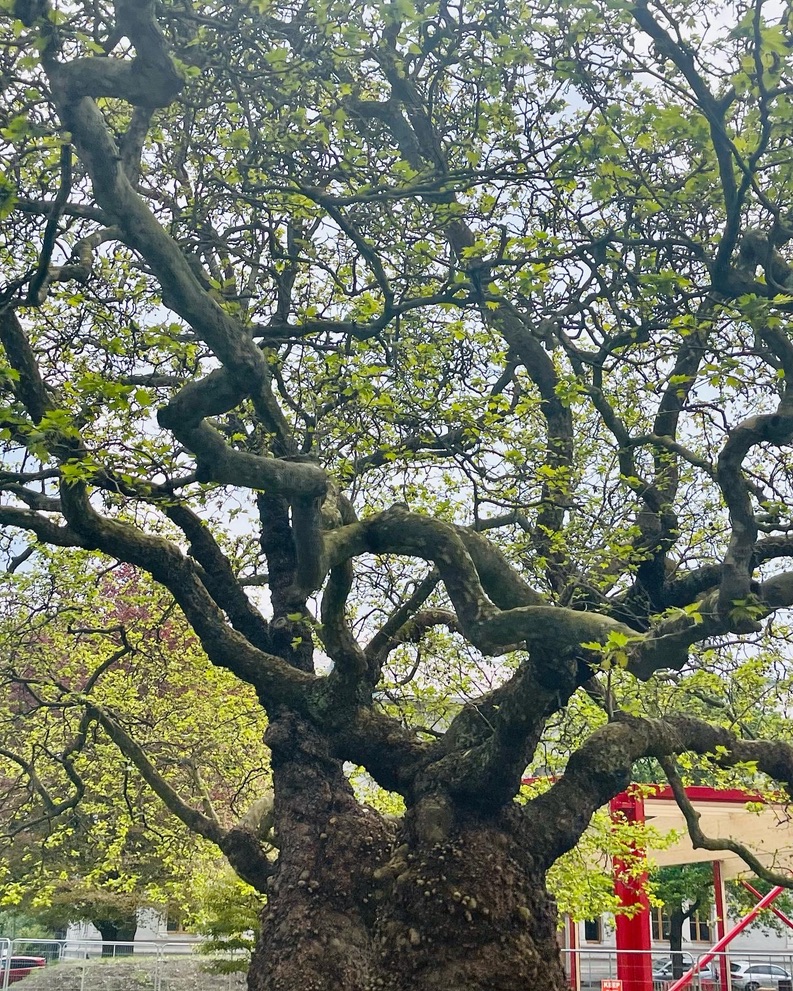I am sitting under the campanile, the green is greener in May in front square, and living in Ireland has taught me new ways to be grateful for the sun, its fleeting yet lasting impression, and its ability to mood shift in powerful ways. Classes have come to an end, the days are longer and slower, allowing me to start my second journey in thesis writing while also taking everything in one last time. Campus is transformed by the dwindling number of students and the growing number of visitors, slowly morphing Trinity out of the academic year and into summer. I always wondered what the end of the year would feel like. After all, I set off on this wonderful yearlong adventure knowing exactly when and where it would end, and how medical school would one day come knocking on life’s doors. The expectedness has not lessened the difficulty of the year’s conclusion.
For my thesis research, I traveled across community centers and refugee camps as part of Europe’s REFUGE-ED consortium. I listened to stories and processed reactions, I participated in activities and understood how education and mental health and psychosocial support intersect. I spoke with staff, teachers, and parents to understand project implementation and the long road between planning and manifestation. In spaces amongst fellow Syrians, I reconciled with being perceived as the American, the Trinity researcher. For the first time, I was confronted with how the hyphen between Syrian and American has created an uncomfortable distance. In that same space though, I also found a great deal of responsibility, and a reminder of the duty to leverage the privilege, and the unjust power ascribed to the association. And once again, I found myself on a long train ride thinking about home, a constant thread throughout the past year, connecting all four of the blogs from this year that have been a source for a great deal of reflection, so there goes the finale.
Much has been written about home, and the diaspora’s search for home – this elusive essence that transcends physical boundaries and embraces the realms of belonging. From the panic at “Where are you from?” to the genuine confusion towards where I can really call home. Yet, to feel at home is to experience sanctuary, a sacred space where the heart finds solace and the soul discovers a sense of rootedness. Though I’ve also grown to think of home as an embodiment of our essence—our ability to love, to be, and to belong. Whether nestled within the walls of a childhood dwelling, a foreign land, or even within the embrace of a community, home is an eternal pursuit—a celebration for a longing that resides deep within our hearts. To leave the first home assigned to us by virtue of geography and generational history, is by design then destined to ignite an eager search for home everywhere, and is inextricably tied to the way we interact with new places. Mourning and nostalgia then, are directly tied to the vulnerability that comes from allowing oneself to feel those extremes. In the search for home, and in daring to imagine a new place as sanctuary, there is a burden of sadness at the chapter’s conclusion.
If in the search for rootedness, we cultivate trees, those trees across every place begin to transcend us and start to inosculate: a natural process where neighboring plants graft in unity seeking nutritional symbiosis, and a biological homonym referring to how blood vessels deal with hypoxia through collateral circulation. In the search for survival, and amidst the darkness, it’s the cultivating of trees that allows roots to lean on each other. As the year is coming to an end, I am learning to honor the sadness, as a symbol of the great joy that has come from this year, and as a sign that a tree has been planted for me in Dublin, forever. To show up somewhere, to love, to dare to dream, to make lifelong friendships and grow alongside a loving family, to talk to strangers, to share moments with those with you and those afar, to learn more from others and about yourself, to suffer loss, to understand boundaries, to immerse yourself in the context, to understand the geopolitical history, to share in the local passions and the globalized relativity of the metropolis, to learn how to say yes and no more thoughtfully – all of those things were Dublin, and I am overjoyed knowing that I will always think of this time fondly and with overwhelming gratitude.
“Tomorrow the future will arrive as the endless application of laws. For now, we can accept only beauty as brute fact.”
– from Apollo’s Baths by Christian Bischoff

